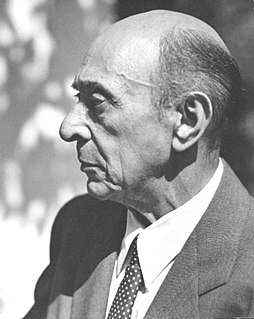A Quote by Max Weber
Causal analysis provides absolutely no value judgment, and a value judgment is absolutely not a causal explanation.
Quote Topics
Related Quotes
The philosopher ... subjects experience to his critical judgment, and this contains a value judgment namely, that freedom from toil is preferable to toil, and an intelligent life is preferable to a stupid life. It so happened that philosophy was born with these values. Scientific thought had to break this union of value judgment and analysis, for it became increasingly clear that the philosophic values did not guide the organisation of society.
To give a causal explanation of an event means to deduce a statement which describes it, using as premises of the deduction one or more universal laws, together with certain singular statements, the initial conditions ... We have thus two different kinds of statement, both of which are necessary ingredients of a complete causal explanation.
I certainly think so, and I argue so, and I give talks on that. Are there risks by putting people together? Absolutely. Is there value in the black church? Absolutely. Is there value in having immigrant churches? Absolutely. But if we don't have congregations gathering with people of different races, what we're doing is we are redefining racial division, a racial inequality.
Value investing is simple to understand but difficult to implement. Value investors are not supersophisticated analytical wizards who create and apply intricate computer models to find attractive opportunities or assess underlying value. The hard part is discipline, patience, and judgment. Investors need discipline to avoid the many unattractive pitches that are thrown, patience to wait for the right pitch, and judgment to know when it is time to swing.
The Zen masters have the right idea-no pain no gain: thwack a silly nebbish and he'll remember it far longer and more indelibly than any words you muster at him. Not absolutely everything can or should have to be explained, and particularly not to everybody. But a concussion is a value-judgment anyone gets the point of.
It seems important that the social value factor be more generally recognized as a powerful causal agent in its own right and something to be dealt with directly as such. No more critical task can be projected for the 1970s than that of seeking for civilized society a new, elevated set of value guidelines more suited to man's expanded numbers and new powers over nature, a frame of reference for value priorities that will act to secure and conserve our world instead of destroying it.
My analysis is that most faith based systems depend upon an absolute moral order. The declaration of things as absolutely evil or absolutely good, as sin or virtue, puts liberalism into a horrible position because it's founded on no judgment on anything. As a result, any faith that is seriously practiced or understood is a challenge to the politics that depend on constituencies that would rather not be told that their choices are bad and their lives are not virtuous.
The emotional, physical and aesthetic value of a sound is linked not only to the causal explanation we attribute to it but also to its own qualities of timbre and texture, to its own personal vibration. So just as directors and cinematographers (even those who will never make abstract films) have everything to gain by refining their knowledge of visual materials and textures, we can similarly benefit from disciplined attention to the inherent qualities of sounds.





































